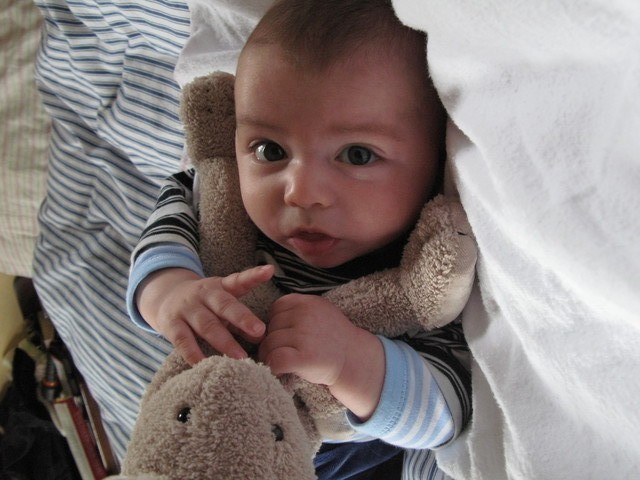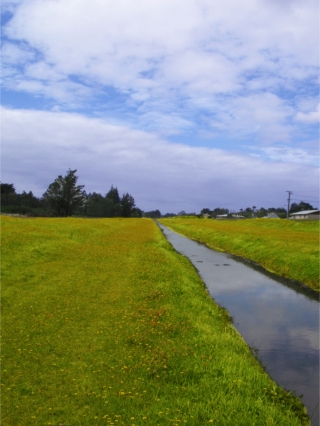Even without consulting a calendar, there are several unmistakeable signs that an election is looming. Mailboxes begin to bulge with political pamphlets (usually containing numerous spelling and punctuation errors). Obscure politicians cut down on their drinking and take a sudden interest in their constituents. And the members of parliament for New Zealand First rise up on their hind legs, and start braying about immigrants.
The braying began early this year with Deputy Leader Peter Brown hee-hawing his opening salvoes in a press release entitled 'Figures Confirm Immigration Folly'. Mr Brown notes the latest Statistics New Zealand projection that 16 per cent of the population may be ethnically Asian by 2026. This, he says, is "horrible" and a source of "real danger" for which "both National and Labour are equally culpable".
Horrible? Real danger? Let's just revise our basic geography so that we can precisely identify these horrible and dangerous people.
A quick squint in the atlas reveals that Asia is the largest continent on the planet -- encompassing around 30 per cent of the land area and 60 per cent of the population. Asia comprises some 50 countries, including India, Pakistan, Iran, the Philippines, Cyprus, and Israel. The biggest single country in Asia is, of course, Russia. (Note: Statistics New Zealand seems to bend the strict geographical definition of Asia by splitting off the Middle East into a separate region. It's unclear whether they distinguish between European and Asian Russians).
The word 'Asian' clearly describes a lot of different people by the Statistics New Zealand definition: Indians, Chinese, Afghans -- can they really all be so horrible and dangerous? Hell yes, insists Mr Brown in his press release, because "they will form their own mini-societies to the detriment of integration and that will lead to division, friction and resentment."
Mr Brown knows this fact because, well, he just has a funny feeling that it must be true. Even if, for example, Scotsmen form their own little Caledonian societies, and no-one thinks they're particularly divisive to society. And Catholics and Protestants even have their own separate schools -- and yet they somehow manage to get along together in this country without friction or resentment.
But Asians are somehow different from Scotsmen or Catholics and Protestants, aren't they? After all, Asians are really different -- they're born in Asia. Well, no, actually. In fact, a large part of the ethnically Asian population growth by 2026 will be due to the children of our current immigrants. Why would these second and third-generation New Zealand-born Asians be so different and dangerous in comparison to European or Pacific New Zealanders? And anyway, where are these huge differences even now?
Gosh... it's enough to make you wonder if there could be another explanation for Mr Brown's funny feeling about Asians.
Here's an alternative hypothesis: what if -- plain and simple -- Mr Brown simply has an irrational dislike for people whose physical appearance is different from his.
And, furthermore, perhaps he suspects that there are a small minority of other sad people like him. And, not to take things too far, maybe he hopes that these misguided people will vote for him, and thus increase New Zealand First's woeful one per cent polling, and hopefully put Mr Brown back into his comfy job in parliament.
Yes, from a certain perspective, New Zealand First's predictable antics are almost humorous. The punchline to Mr Brown's crack-brained press release, of course, is that he himself is an immigrant to this country, something that he seems to have conveniently forgotten.
There's a school of thought that New Zealand First's idiocy stirs up parliament in an amusing manner. They make politics a little more interesting, and do no real harm; effectively they're a party of taxpayer-funded clowns. This is not a point of view that I share. Just after the last election -- during which similarly anti-immigrant sentiments were bandied about -- I conducted a lengthy interview with Dr Lan Le-Ngoc.
Dr Le-Ngoc arrived here from Vietnam as a teenager, and has subsequently become one of New Zealand's top scientists. Unlike Mr Brown, he has made a genuine contribution to this country, and his work was recently recognized by a Royal Society Medal. Here's what Dr Le-Ngoc had to say about the increasing levels of racism that he's observed during his time in New Zealand:
[In my opinion], the rhetoric of people like Winston Peters and Don Brash has actually promoted anti-immigrant sentiment. It was probably always there to a certain extent, but when senior politicians start spouting this sort of nonsense then it isn't merely airing the views of a racist minority -- it actually starts to incite racism.
Easily-led people take such political rhetoric as legitimization of their own bigoted views. They think it gives them carte blanche to treat immigrants rudely in shops, or to shout insults from their cars. Of course, I'm not suggesting that this is the intention of Peters or Brash. They're just doing it to get votes. I'm sure that after the election they forget all about it. But they don't realize the long-term impact that it's having on people like me and my family -- who can be easily identified as having ancestry from somewhere other than Europe.
After hearing something like this it's hard to find cretins like Mr Brown particularly amusing. In fact, I think that Mr Brown is not only a disgrace to parliament and a source of national shame to New Zealand -- but even perhaps, in his own way, a 'horrible' and 'dangerous' influence.
And frankly, the sooner he and his creepy New Zealand First chums are out of politics the better for us all.





